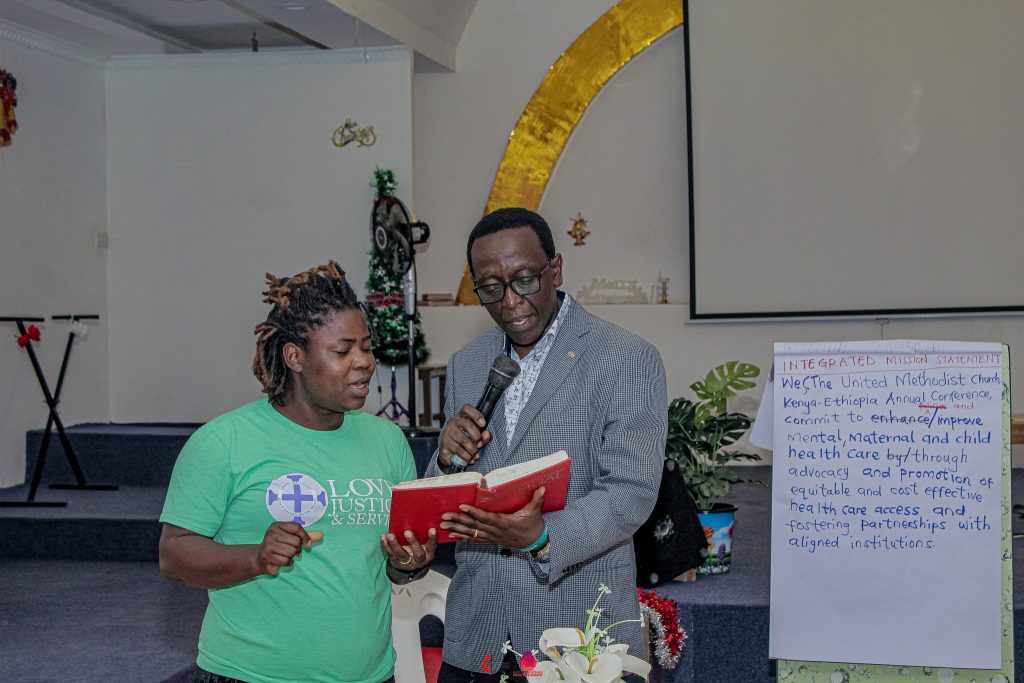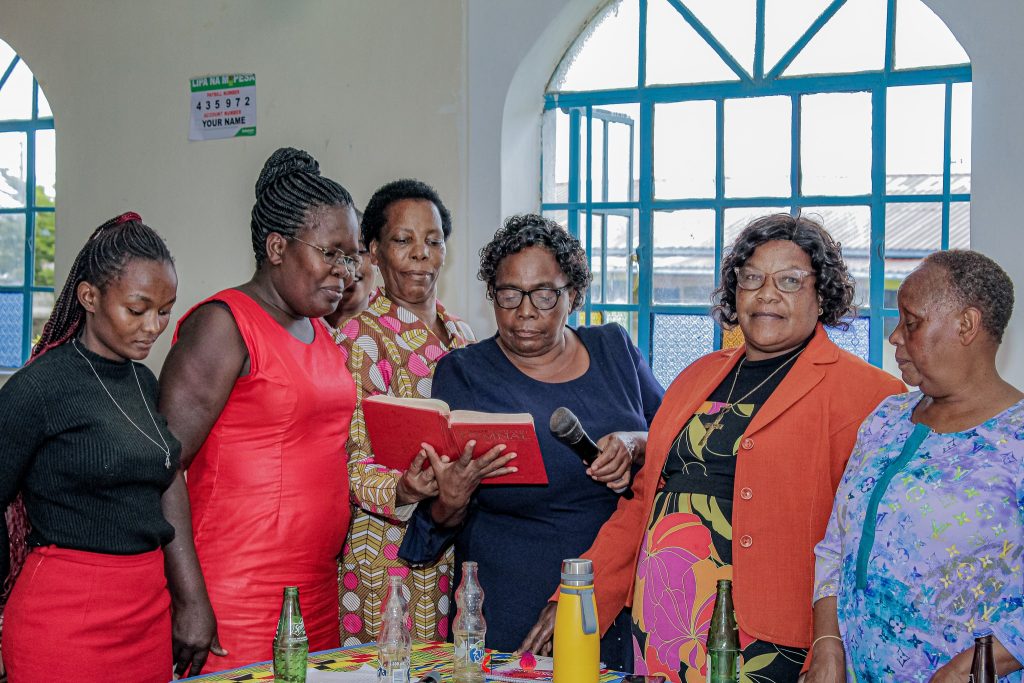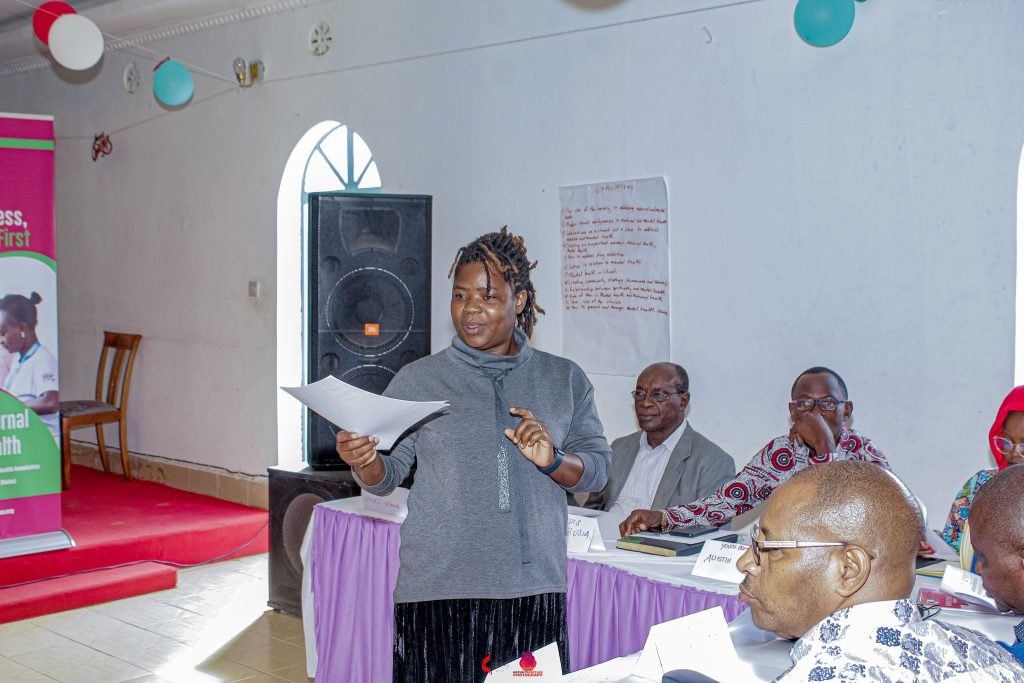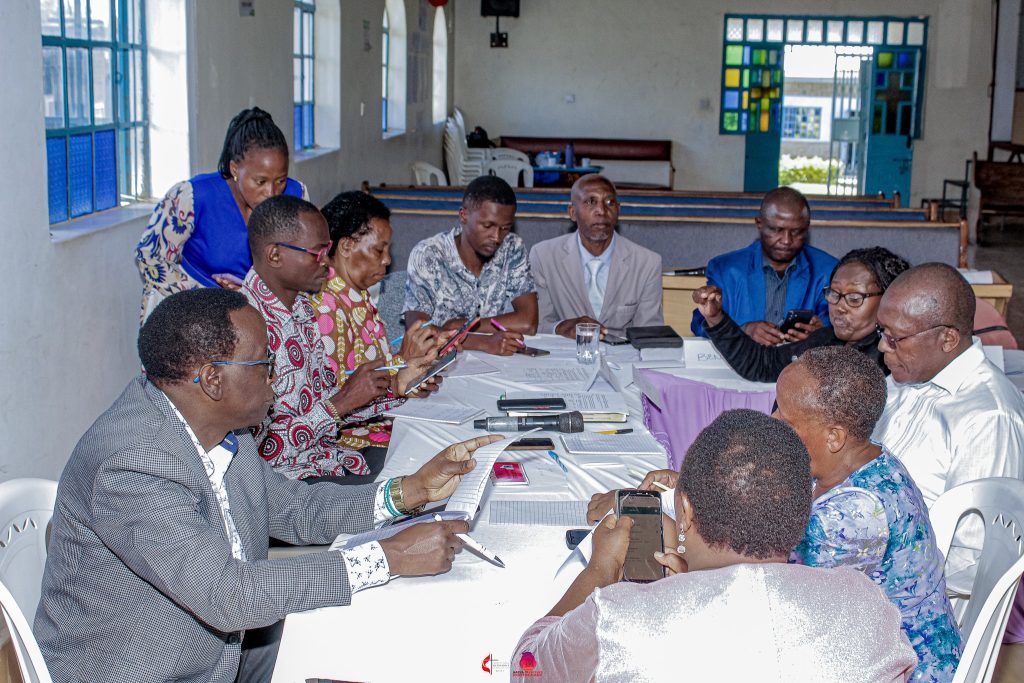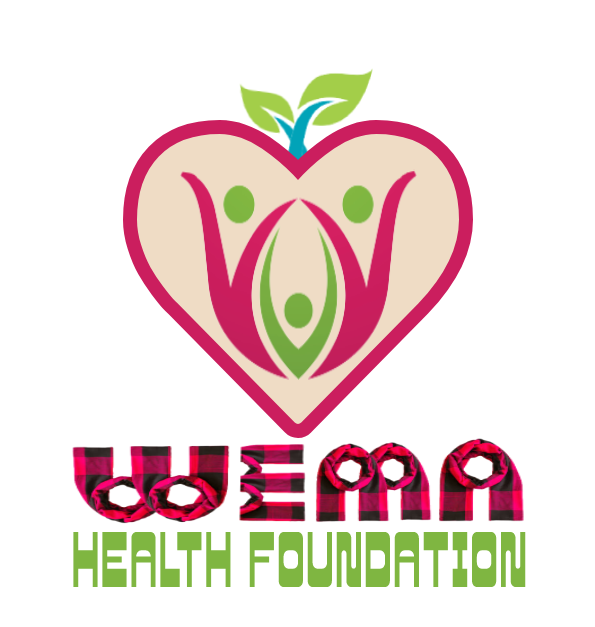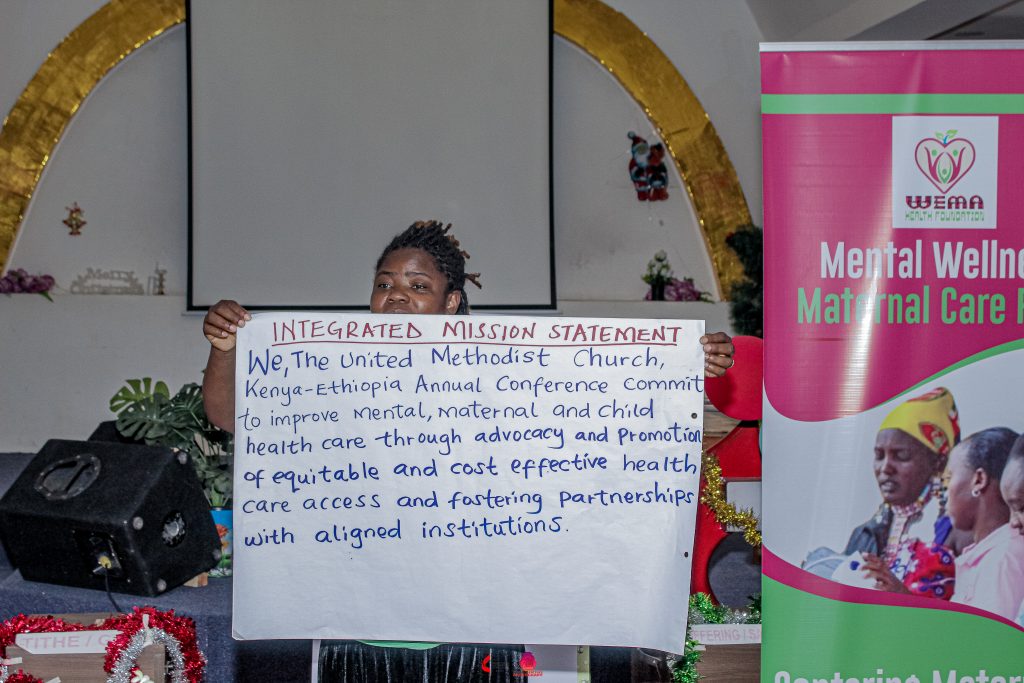
In a region where stigma and limited resources hinder access to mental and maternal healthcare, the United Methodist Church (UMC) Kenya-Ethiopia Annual Conference is stepping up to make a difference. The Conference hosted a transformative two-day Health Advocacy Training on January 3–4, 2025. The event, facilitated by the Wema Health Foundation with financial support from the General Board of Church and Society, was held at Trinity UMC in Naivasha. It brought together 23 participants representing the nine UMC districts in Kenya, alongside five youth representatives.
As trusted community institutions, churches have a unique opportunity to bridge these gaps. The workshop served as a platform for brainstorming and integrating mental and maternal well-being into the strategic directions of the Annual Conference. Participants collaborated to develop a mission statement that will guide local congregations and districts in advocating for maternal and mental health justice.
The first day began with inspiring remarks from the host, Rev. Paul, and a keynote address by Wema Health Foundation founder Leah Wandera. In her speech, Leah emphasized the Church’s pivotal role in addressing health challenges within their communities.
Supporting Mothers-MCH
The session on maternal health, led by Margaret, a facilitator and technical lead for the RMNCAH Kenya Project, shed light on the region’s maternal and child healthcare challenges. Through interactive discussions, participants explored leading causes of maternal deaths in the region, including postpartum hemorrhage, eclampsia, antepartum hemorrhage, sepsis, obstructed labor, ruptured uterus, and complications related to Female Genital Mutilation (FGM).
Margaret highlighted the glaring gaps in maternal healthcare and stressed the urgent need for church-led initiatives to address these challenges. She urged church leaders to adopt a compassionate and supportive approach towards women grappling with maternal health issues, rather than judgmental attitudes that often exacerbate their struggles.
“I would like to suggest something on mental health. Yesterday reminded me my story more than 20 years ago where I lost my first baby in hospital after delivery. I was told the baby inhaled dirt after a few minutes it died. After that I left and found myself home without knowing. For a very long time I could not pass near the hospital due to trauma. So, when we go home let us try to do something” shared Florence.
Drawing from her experiences as a reverend’s wife, facilitator Margaret shared case studies illustrating how the Church sometimes perpetuates injustices in maternal and child health (MCH).
“How many of us have excommunicated a church member—perhaps a praise and worship leader—because she became pregnant outside marriage? How do we handle adolescent pregnancies? Are we the ones who condemn first, speculating about the father—whether he’s a boda boda (motorbike) rider, teacher, tout, chief, or even a reverend?” she challenged the participants.
A notable discussion emerged on the lack of male involvement in MCH advocacy.
“For us men, we often avoid going to the hospital because the information shared there discourages us,” said Mbae, a youth participant.
Margaret responded by encouraging churches to take proactive steps to engage men.
“That’s why, as a church, you can bring doctors to the congregation. Organize men’s seminars and invite health professionals to speak. Create a health corner within the church where people can access services like blood sugar tests, blood pressure checks, and weight monitoring in a strategic, accessible location. Establish support groups and engage congregants in health-related discussions. Additionally, teach them to pray for themselves to build resilience,” she advised.
Mental Health Care
The session on mental health was co-facilitated by Coach Paps and George Chacha. They emphasized the power of redemption through being grounded in God and the gospel as well as the church as God’s family to love on someone. The facilitators urged participants to emulate the Bible when handling issues like in Luke 2:42-52. Finding of Jesus in the temple, ordinarily, parents would thrash their children for getting lost/answering rudely but this did not happen. Furthermore, they emphasized on the importance of health social relationships such as marriage as it is only through such that individual and the community can thrive.
They challenged the leaders to ponder over certain peculiar habits in the society:
- We are ready to pay any amount to attend a workshop on community health, yet we will not see it fit to pay something to attend a singles’ seminar to capacity build you to have good stable families.
- Prevention is better than cure, so we say in regard to waterborne diseases; yet we never bother to put measures to prevent our families from disintegrating.
- A marriage that crumbles in years/months to come is often obvious during courtship
Day 2: Vision, Mission, and Next Steps
The second day began with a reflection session led by Leah Wandera, during which participants shared insights from Day 1. Joel, one of the participants, committed to advocating for mental health awareness, while Florence expressed a renewed passion for addressing maternal health challenges inspired by her personal experiences.
A deep dive into scripture, including passages such as 2 Kings 5 and Mark 5:25–34, reinforced the biblical foundation for health advocacy. Participants drew parallels between biblical health challenges and modern-day issues, highlighting the Church’s role as a source of healing and hope.
Case Study and Practical Insights
One of the session’s highlights was a case study presented by Philma, a participant from the First United Methodist Church in Moheto, Migori County. She shared the success story of a community health facility established by her church. The case study offered valuable insights into conducting needs assessments, building partnerships, and sustaining healthcare initiatives.
Participants then worked in groups to draft mission statements addressing mental health, maternal health, and child healthcare. These drafts were consolidated into a unified statement:
“We, the United Methodist Church, Kenya-Ethiopia Annual Conference, commit to improving mental, maternal, and child healthcare through advocacy, equitable access, and strategic partnerships.”
This two-day training is not just an event—it marks the beginning of a transformative journey for the United Methodist Church, its leaders, and the communities it serves. By addressing mental and maternal health challenges head-on, the Church is embracing its calling to be a beacon of hope, healing, and holistic care. Together, we can turn this mission into a movement that changes lives.
